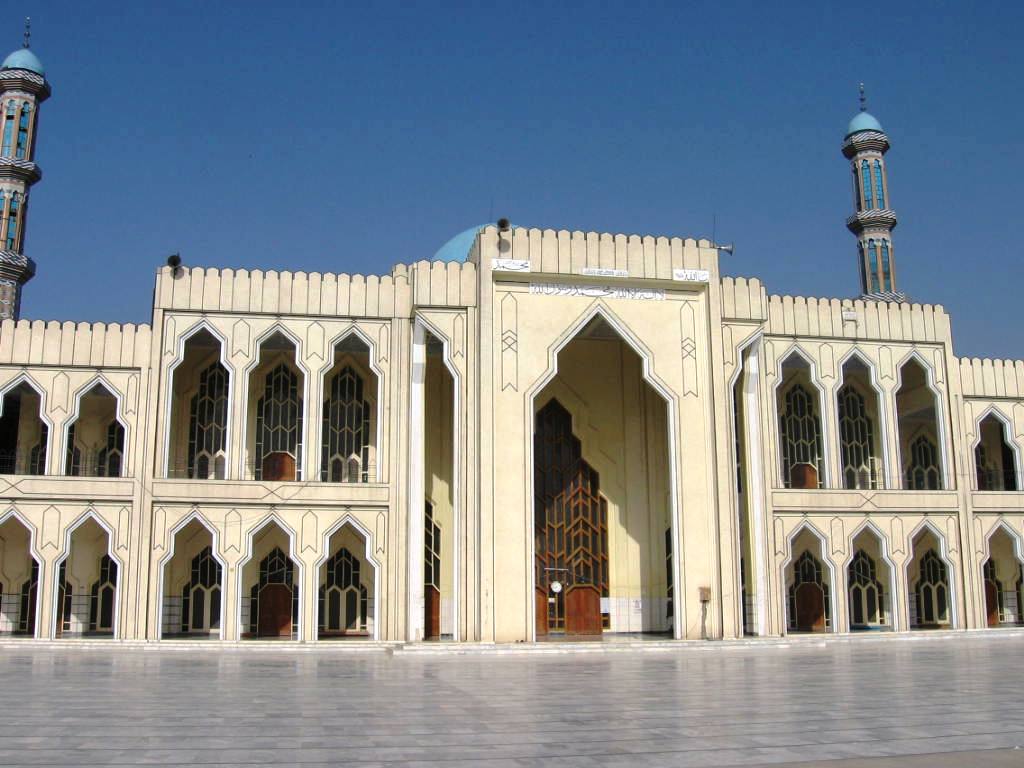Afghanistan: Khost Mosque Blast
May 7, 2018 | Expert Insights

The Khost mosque in East Afghanistan was subject to explosion: killing 17 and leaving 34 injured. In late April, 60 people were killed in a suicide bombing at a Kabul voter registration center – an act that was claimed by the Islamic State.
Background
Afghanistan, a landlocked country is located between South and Central Asia. It has been a home to ethnic Pashtuns, Tajiks, Hazaras and Uzbeks. Called “unconquerable”, it has been a “military graveyard of empires” such as British, Russian and Mughal. With a population of 35 million, it remains one of the poorest countries in the world.
The major problem prevailing in Afghanistan recently has been with respect to voter registration. Its voting system has faced repeated complaints of corruption. The voters are allowed to use their 2001 issued voting cards in any polling station. There have been three major registrations since 2001, putting more than 20 million voting cards in circulation. But it is believed that there are around 12 million voters, so the number of cards is an obvious potential fraud. On some estimates it would take up to 10 years to introduce a full electronic identity system. The continuous failure to set a date for either new elections or reform the system led United Nations Development Programme to cancel a multimillion-dollar project to fund Afghan electoral bodies in June 2015.
There have been a number of attacks on voter registration centres since the process started last month for October's parliamentary elections. The most recent one being the suicide bombing at Kabul on 22nd April followed by the Khost mosque attack. The former was claimed by the Islamic State but no group claimed responsibility for the latter attack. In fact the Taliban who have been warning people not to participate in elections, issued a statement denying any involvement.
Analysis
Basir Bina, spokesman for the provincial police, said “people were gathered after afternoon prayers in the mosque, which was also being used as a voter registration centre for parliamentary elections due in October.” He also mentioned that the blast appeared to have been caused by explosives left in the mosque rather than by a suicide bomber.
Medical aid group Medecins Sans Frontieres said it had donated emergency supplies to the Khost provincial hospital where many of the wounded were taken.
Last month, around 60 people were killed in a suicide attack on a voter centre in the capital Kabul. The attack was claimed by Islamic State. Also, there have been a string of smaller incidents that have deterred many from going to the voter centres.
“Attacks on voter registration centres, on election officials and election workers [show] clearly opponents of the government are trying to derail these long-awaited elections," said Al Jazeera's Jennifer Glasse, reporting from Kabul.
An estimated one million people have so far registered to take part in the ballot since the process began last month, Glasse noted, still well short of the government's target of 15 million registrations by mid-June. "That now seems a very distant prospect," added Glasse, noting that many people in Kabul were "frightened to go to any of these voter registration centres. Some of them are in schools and parents have objected to this because they are worried about the safety factor."
Election officials have also admitted that the registration turnout has so far been low.
Aminullah Habibi, a Kabul-based former adviser to international forces in Afghanistan, told Al Jazeera that the reason for the low figure is the lack of security around registration centres. "If such attacks continue to happen, it will definitely deter people from registering. This raises a lot of questions about the ability of the government to have this election," he said. "It has been only a month since the registrations are open and so far we have only seen about a million people who have registered for voting.”The government is not able to manage security properly, despite having enough resources for it."
Assessment
Our assessment is that such attacks will definitely deter people from registering. We believe that a low number of registrations would raise questions regarding the ability of the government to hold this election.
Read more: Violence in Afghanistan








Comments